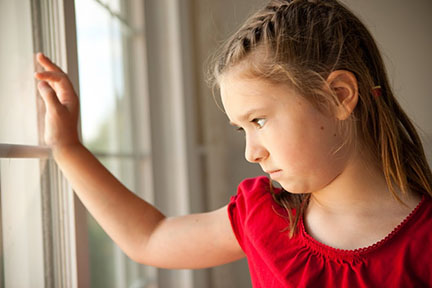
By Carolyn Ellis
When child custody and visitation is handled well, one of the major sources of long-term emotional fallout of divorce on children can be avoided. Too often warring parents create custody battles or use visitation as a weapon against a former spouse. The ones who suffer from those kind of adversarial tactics are the children.
Here are some essential custody and visitation do’s and don’ts when it comes to ensuring visitation helps your children cope in a post-divorce world.
Custody and Visitation Do’s:
Keep Your Children’s Best Interests in Mind
When setting up a visitation schedule, bear the age and emotional stage of your children in mind. Be prepared to review and adjust your visitation schedule as your children get older. For example, a 50/50 schedule between mom’s house and dad’s house can be challenging for young infants and toddlers, but that might be a perfect schedule for older school age children.
Be Consistent
Structure gives children a much-needed sense of security and safety, particularly when their lives have been through the upheaval of their parents getting separated. There is nothing worse than one parent being a no-show for a much anticipated visit. If you need to make a change in your schedules, work it out in advance so there last-minute cancellations or surprise switches are avoided as much as possible.
Have Communications Guidelines
Work out your visitation schedule in advance and put it on your home calendar where your children can see it. Set up a structure that works for you both around how to communicate and negotiate visitation. Emails or texts can work if phone or in-person conversations feel challenging. If someone needs to request a change to your schedule, agree that the other spouse will give a response within a certain timeframe eg within 48 hours.
You might want to get the help of a social worker or parenting coordinator to help you set up the parameters for your visitation, and to act as a third party to help you mediate any disputes if you can’t come to an agreement between yourselves.
Custody and Visitation Don’ts:
Use Your Children as Messengers
Conversations about custody, visitation schedules, or making changes to them is something that you should discuss directly with your ex-spouse. Don’t tell your children to deliver the message to their mom that you want to have them 2 weekends in a row because your parents are coming for a visit from out of town. Schedule changes can be contentious if not handled well and with respect. When you ask your children to deliver a message you’re not only putting them in the middle. Plus, it sets your children up for disappointment if you set up expectations or make them promises you can’t keep because you haven’t cleared it in advance.
Don’t Trash Talk Your Ex
Children are very intuitive and pick up readily when there is anger, resentment or blame. If your children complain about having to shuttle between mom’s house and dad’s house, don’t say “Well, if daddy hadn’t cheated on me then none of us would be in this situation.” If you have grievances about visitation or unresolved feelings about your divorce, talk to an experienced third party like a therapist or a coach, not your children. Hearing one parent bad mouth the other makes children feel torn loyalty between their parents and like they are somehow responsible for getting one parent upset.
Be Disorganized
Learning how to plan ahead and integrate a visitation schedule into your life isn’t always easy. It requires a level of organization so you know what’s on the calendar and a commitment to good communication and planning.
Carolyn Ellis is the Founder of ThriveAfterDivorce.com and BrillianceMastery.com. She is an award-winning coach, transformational expert and author of the award-winning The Divorce Resource Kit and The 7 Pitfalls of Single Parenting: What to Avoid to Help Your Children Thrive After Divorce. Combining her deep intuitive abilities with her Harvard-trained brain, Carolyn specializes in helping individuals navigate change and uncertainty by tapping into their own inner brilliance and emotional resilience. To learn more or to book a session, please visit www.ThriveAfterDivorce.com.







